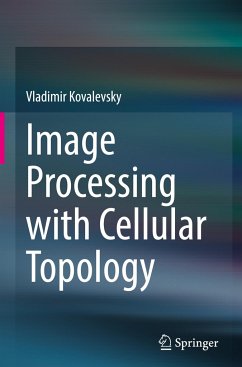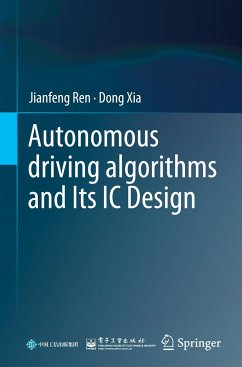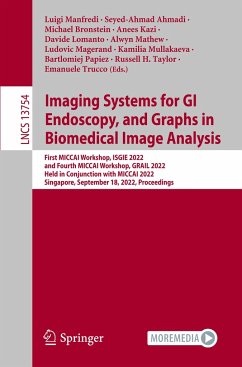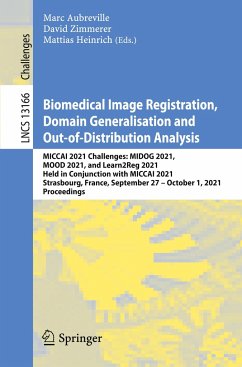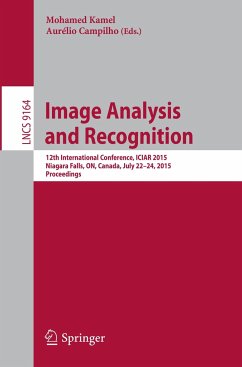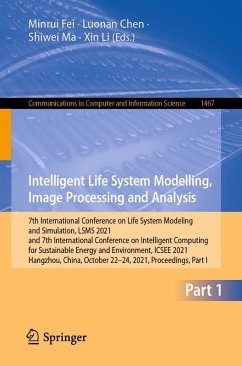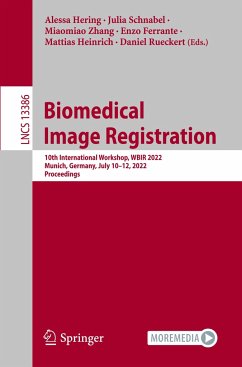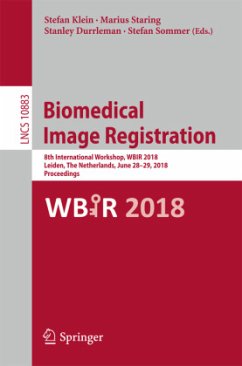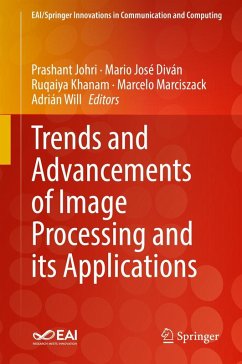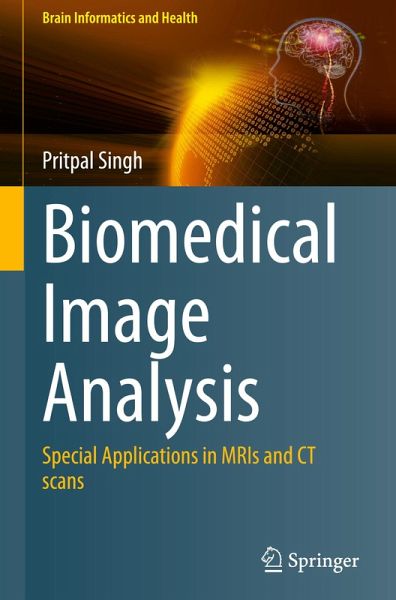
Biomedical Image Analysis
Special Applications in MRIs and CT scans
Versandkostenfrei!
Versandfertig in 1-2 Wochen
107,99 €
inkl. MwSt.
Weitere Ausgaben:

PAYBACK Punkte
54 °P sammeln!
This book provides an in-depth study of biomedical image analysis. It reviews and summarizes previous research work in biomedical image analysis and also provides a brief introduction to other computation techniques, such as fuzzy sets, neutrosophic sets, clustering algorithm and fast forward quantum optimization algorithm, focusing on how these techniques can be integrated into different phases of the biomedical image analysis. In particular, this book describes novel methods resulting from the fuzzy sets, neutrosophic sets, clustering algorithm and fast forward quantum optimization algorithm...
This book provides an in-depth study of biomedical image analysis. It reviews and summarizes previous research work in biomedical image analysis and also provides a brief introduction to other computation techniques, such as fuzzy sets, neutrosophic sets, clustering algorithm and fast forward quantum optimization algorithm, focusing on how these techniques can be integrated into different phases of the biomedical image analysis. In particular, this book describes novel methods resulting from the fuzzy sets, neutrosophic sets, clustering algorithm and fast forward quantum optimization algorithm. It also demonstrates how a new quantum-clustering based model can be successfully applied in the context of clustering the COVID-19 CT scans. Thanks to its easy-to-read style and the clear explanations of the models, the book can be used as a concise yet comprehensive reference guide to biomedical image analysis, and will be valuable not only for graduate students, but also for researchers and professionals working for academic, business and government institutes and medical colleges.





